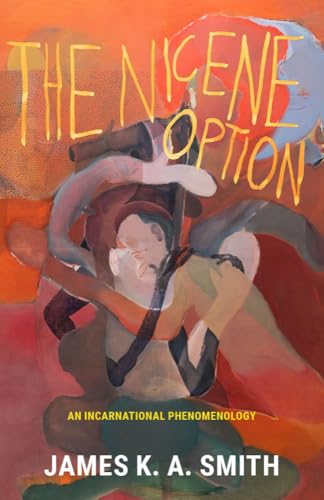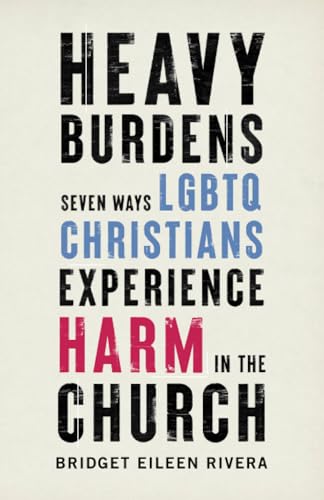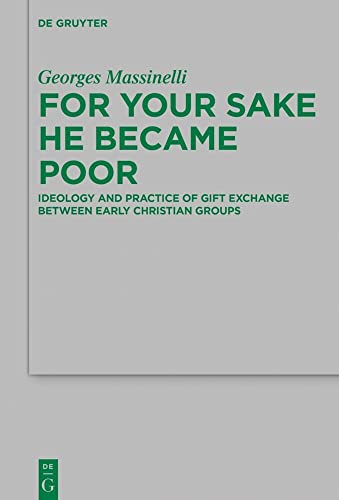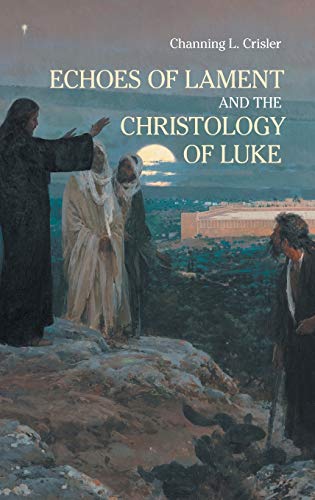The Nicene Option: An Incarnational Phenomenology
Written by James K. A. Smith Reviewed By Francis Jr. S. SamdaoJames K. A. Smith is an Augustinian philosopher-theologian and is also one of the voices of Radical Orthodoxy. Amos Yong considers him as “one of the most promising young theologians on the horizon today” (In “Radically Orthodox, Reformed, and Pentecostal: Rethinking the Intersection of Post/Modernity and the Religions in Conversation with James K. A. Smith,” Journal of Pentecostal Theology 15 [2007]: 236).
Though this book is purely academic and loaded with philosophical-technical jargon, understanding the book’s structure can serve as an aid. The first half of the book functions as a “methodology” of Smith in explicating continental philosophies and phenomenology to the philosophy of religion. In the second part, readers are invited to journey with different philosophers, including Jean-Luc Marion, Jacques Derrida, and Immanuel Kant.
In the first half of the volume, Smith discusses the development of continental philosophy and the “methodological method” of this discipline. This section explains that the philosophy of religion is not about abstract ideas but rather a philosophical reflection on the practices or liturgies embedded in religion. This is a common argument in his Cultural Liturgies trilogy (published by Baker Academic) and You Are What You Love: The Spiritual Power of Habit (Grand Rapids: Brazos, 2016). Perhaps one main difference in this book is that he operates based on the central affirmation of the Nicene Creed (325 AD), which he calls the logic of incarnation in contrast with the logic of determination. The former appreciates our finitude and particularity while the latter sees our imperfections and limitations as violence. One can understand this more in chapter 4.
To understand the background, Smith argues that there is a lacuna in the contemporary philosophy of religion because of the grip of Cartesian thought. Human beings are assumed as “thinking things”; hence, the focus is on ideas or propositions (what we believe), discounting the importance of liturgy, worship, and practices (what we do) in the formation of a Christian and manifestation of religious beliefs. Following his Cultural Liturgies series, he uses liturgy as a source to present a philosophy of religion that differs greatly from the cognitive phenomenon. Smith argues that “religion takes practice,” and he emphasizes the appreciation of the centrality of liturgy, whether in Christian worship or the “secular.” For him, even non-religious people have liturgies of their own; thus, they remain religious and believers—so to speak. Throughout the book, I observe the repetitive argument by Smith that religion is not just an intellectual phenomenon or “heady” affair. Moreover, modernity’s assumption concerning the neutrality of the secular is false since every standpoint has its tradition and biases.
In the second part, Smith expounds on Derrida’s “logic of determination.” Instead of seeing finitude, interpretation, and embodiment as violence, Smith argues for an alternative rooted in the councils of Nicaea and Chalcedon that affirmed the divinity and humanity of Christ. That affirmation shows the importance of finitude, particularity, and embodiment. The rest of the second part discusses Derrida’s proposal of religion without content (dogma) or a “contentless religion” that focuses on justice (pp. 97, 105). Such kind of religion assumes a quasi-eschatology or a “hope that has no hope” (p. 127). Smith concludes that such a vision is a false hope for it lacks ground and object. For example, Derrida’s proposal of justice is detached from any embodied particularities. Smith categorizes such quasi-eschatology as “excarnation”—a pure ideal of justice that devalues “embodied particularity” (pp. 5, 6). In short, Derrida fails to present the content of what he is hoping for. In chapter 7, Smith proposes an alternative which is the Christian eschatology as the only hope in post-modernity.
In sum, Smith argues that religion is embodied, not just a composition of ideas. Second, humans by nature are desiring beings or creatures of love. Third, human reason is inadequate to sustain a moral being. Therefore, ethics is not just about decision-making based on reason but more on where the desire or love is aimed at.
The latest work is an impressive display of Smith’s understanding of philosophy and engagement with Derrida. This book serves as an extended footnote and a deeper reflection of Smith’s earlier work. Readers would do well to acquaint themselves with his Cultural Liturgies volumes to grasp The Nicene Option better.
The Nicene Option is heavy reading, but since most of the contents are published articles originally, readers do not need to read the entire book in one sitting. Reading the volume chapter by chapter over a few days or weeks does not make the readers forget the overall theme as long as they are aware of the two contrasting nomenclatures: the logic of the incarnation and the logic of determination. In layman’s explanation, Smith contends that we should see our finitude, particularity, imperfection, and materiality as gifts. That argument differs from Platonist and Cartesian dualistic approach to reality which sees our limitation and finitude as problematic.
Francis Jr. S. Samdao
Francis Jr. S. Samdao
Philippine Baptist Theological Seminary
Baguio City, Philippines
Other Articles in this Issue
This article examines Christopher Nolan’s three most recent films, Interstellar (2014), Dunkirk (2017), and Tenet (2020), through the lens of Christianity’s preeminent theological virtues: love, hope, and faith, respectively...
Syncretism—the blending of two or more religious paradigms—threatens Christian witness around the world...
Revisiting “the Time of Abiathar the High Priest”: Interpretation, Methodology and Ways Forward for Understanding Mark 2:26
by William B. BowesMark 2:26 has presented itself as a difficult textual and historical problem for interpreters...
Give Honor and Vote? A Reflection on the Christian’s Voting Conscience and Romans 13:1–7
by Robert GoldingPaul’s instruction in Romans 13:1–7 can be applied to Christian voting behavior in the West...
Hell for a Single Sin: A Response to Robert Golding’s Asymptotic Theory of Those in Hell
by Paul DirksThis article is a response to Robert Golding’s recent essay, “Making Sense of Hell,” in which he contends for the logic of eternal punishment on the basis of a progressive and asymptotic conception of sin and sinners in hell...






